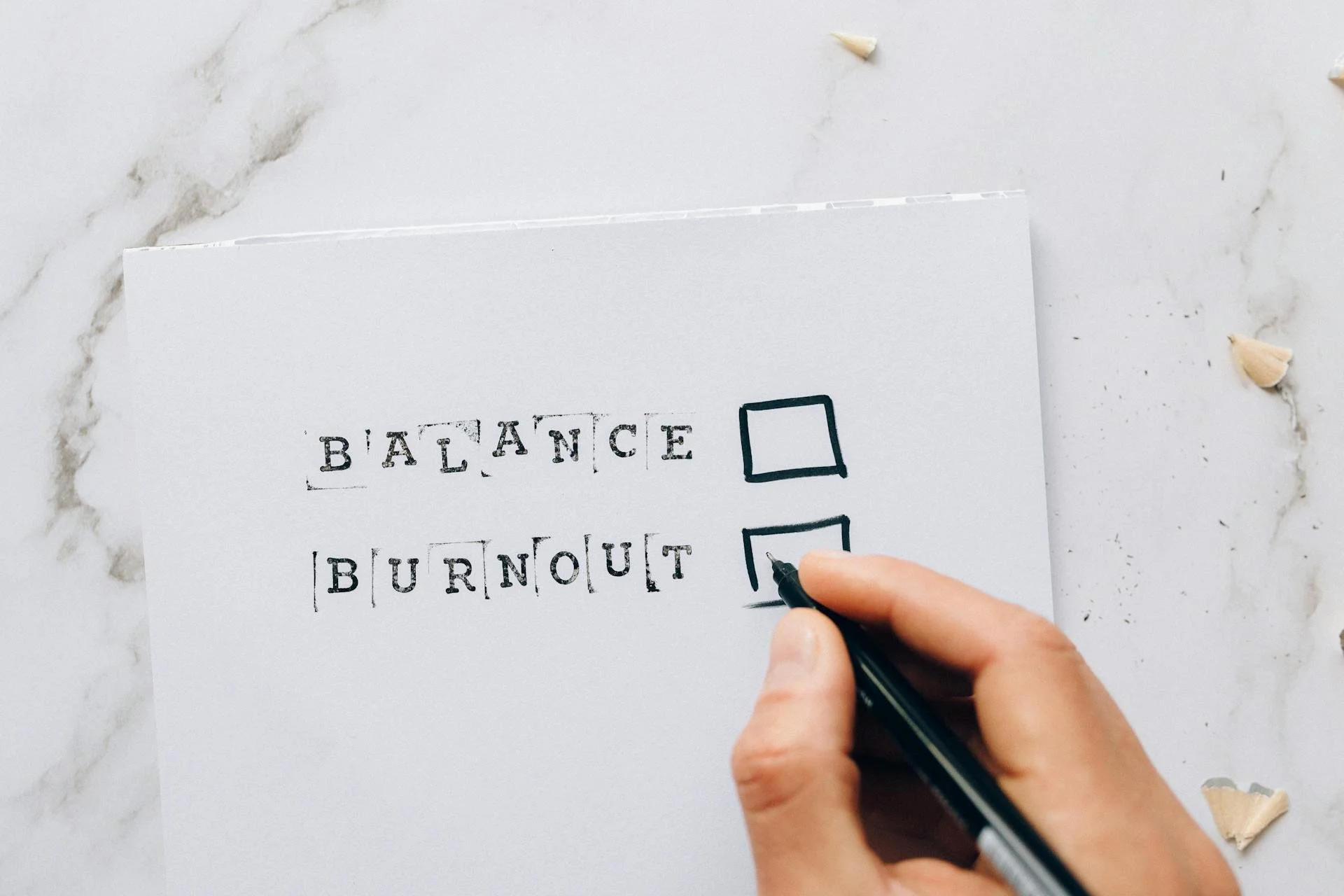How to Prevent Burnout and Boost Productivity at Your Workplace
Ever feel totally wiped out from work, like you just can't keep going? That's what we call burnout. It's not just being tired; it's when you're super stressed for a long time, and it makes you feel empty, grumpy, and like you're not good at your job anymore. But guess what? You can stop it from happening and even feel better and get more done at work.
Why Do We Get So Tired?
It helps to know what makes us feel this way. Here are some common reasons:
Too Much Work: Always having a huge pile of things to do without enough breaks.
No Say in Your Work: Feeling like you can't decide how or when you do your tasks.
Not Knowing What to Do: When your boss isn't clear about what they want, or things keep changing.
Not Getting Credit: Feeling like your hard work goes unnoticed.
Unfair Treatment: When things at work don't feel right or fair.
Work Takes Over: When you can't switch off from work, even at home.
Your Values Don't Match: When what you believe in doesn't line up with your company's way of doing things.
Spotting these signs early is the first step to feeling better.
Simple Ways to Prevent Burnout and Do Better Work
Stopping burnout means taking charge and making some changes. Here's how:
1. Set Clear Lines Between Work and Home
One of the best ways to avoid burnout is to keep your work life and home life separate.
Set Work Hours: Try to stick to a regular schedule. Don't check emails or take calls when you're supposed to be off.
Have a Work Spot: If you work from home, try to have one area just for work. This helps you "leave" work when you're done.
Turn Off Work Brain: Make time to totally disconnect from work. This means no screens, no work thoughts, especially on evenings, weekends, and holidays.
Tell Others Your Hours: Let your co-workers and clients know when you're available so they don't expect you to reply right away.
When you truly unplug, your mind and body get to rest, which helps you be more effective later.
2. Handle Your Workload Smarter
Feeling swamped with tasks is a quick way to get burned out. Learn to manage your work smartly:
Pick What's Most Important: Figure out which tasks are super important and need to be done right away.
Break Down Big Jobs: If a task seems huge, break it into smaller, easier steps.
Learn to Say No: It's okay to politely say no if someone asks you to do more when you're already busy. Knowing your limits is good.
Let Others Help: If you can, ask others to do some tasks that they can handle.
Take Small Breaks: Little breaks during the day help you focus better and stop your brain from getting tired. Try working for 25 minutes, then taking a 5-minute break.
Managing your work better not only cuts down stress but also helps you focus on the most important things, which means better results.
3. Take Care of Yourself
Taking care of yourself isn't a luxury; it's a must if you want to avoid burnout. Doing things for yourself every day helps you handle work stress:
Get Enough Sleep: Aim for 7-9 hours of good sleep each night. Not sleeping enough makes it hard to think straight and control your feelings.
Eat Good Food: Eating healthy gives your body and brain energy, making you feel better.
Move Your Body: Exercise is great for reducing stress and lifting your mood. Even short walks help.
Try Relaxing: Doing things like meditation or just focusing on your breath can help you calm down and worry less.
Do Things You Enjoy: Spend time on hobbies or interests outside of work. This gives your mind a break and makes you feel happy.
Looking after your body and mind is the best way to keep burnout from taking over.
4. Build Good Relationships
Having people who support you, both at work and at home, can protect you from stress and burnout:
Connect with Co-workers: Try to get along with the people you work with. A friendly workplace makes tough times easier.
Talk to Your Boss: If you're feeling overwhelmed, tell your manager. They might be able to help.
Talk to Friends and Family: Share how you're feeling with people you trust. Sometimes just talking about it makes a huge difference.
Find Someone to Guide You: A mentor can offer advice and support, especially when work gets tough.
Having people to talk to and share your experiences with can make you feel less alone and stressed.
5. Get Help If You Need It
Even if you try all these things, sometimes burnout can hit hard. It's really important to know when to ask for help. There's nothing wrong with getting support for your mental health, just like you would for a physical problem.
Talk to a Mental Health Professional: If you're always feeling tired, grumpy, hopeless, or find it hard to do normal things, reaching out to a therapist or counselor can help. They can teach you ways to cope and figure out what's going on.
Consider Medication Help: For some people, burnout might come with feeling very anxious or sad. A doctor called a psychiatrist can see if medicine might help as part of your treatment.
Talk to Psychiatrists: These are medical doctors who specialize in how your mind works. They can figure out what's wrong, talk through your feelings, and give you medicine if it's needed. If you feel really bad and it's messing with your daily life, talking to a psychiatrist can be a good way to start feeling better.
Remember, taking care of your mind is a big part of stopping burnout and having a good, productive work life. Don't be afraid to ask for help; it shows you're strong and care about your health in the long run.
By taking steps to stop burnout and looking after yourself, managing your work well, and getting professional help when needed, you can have a healthier, more productive, and happier work life. Your well-being is your most important asset.


